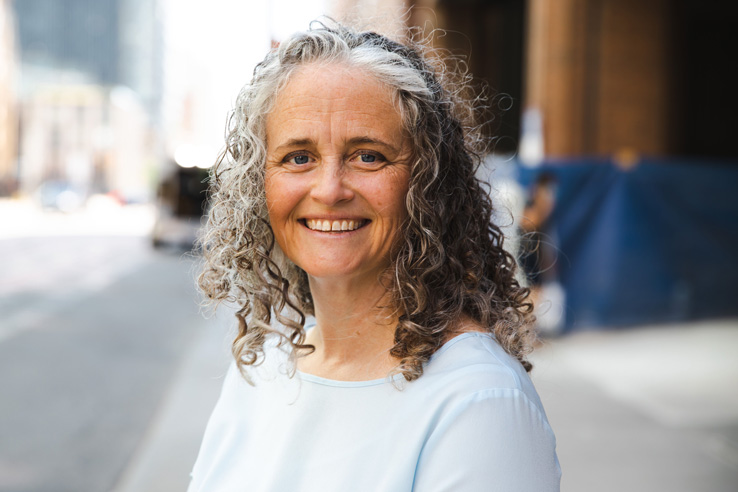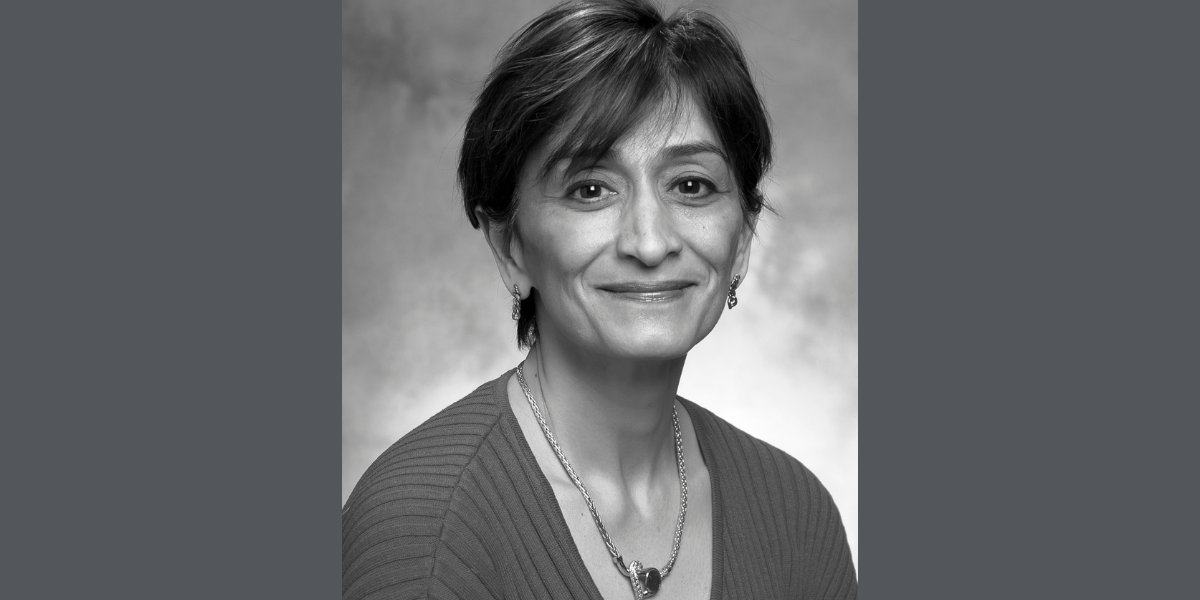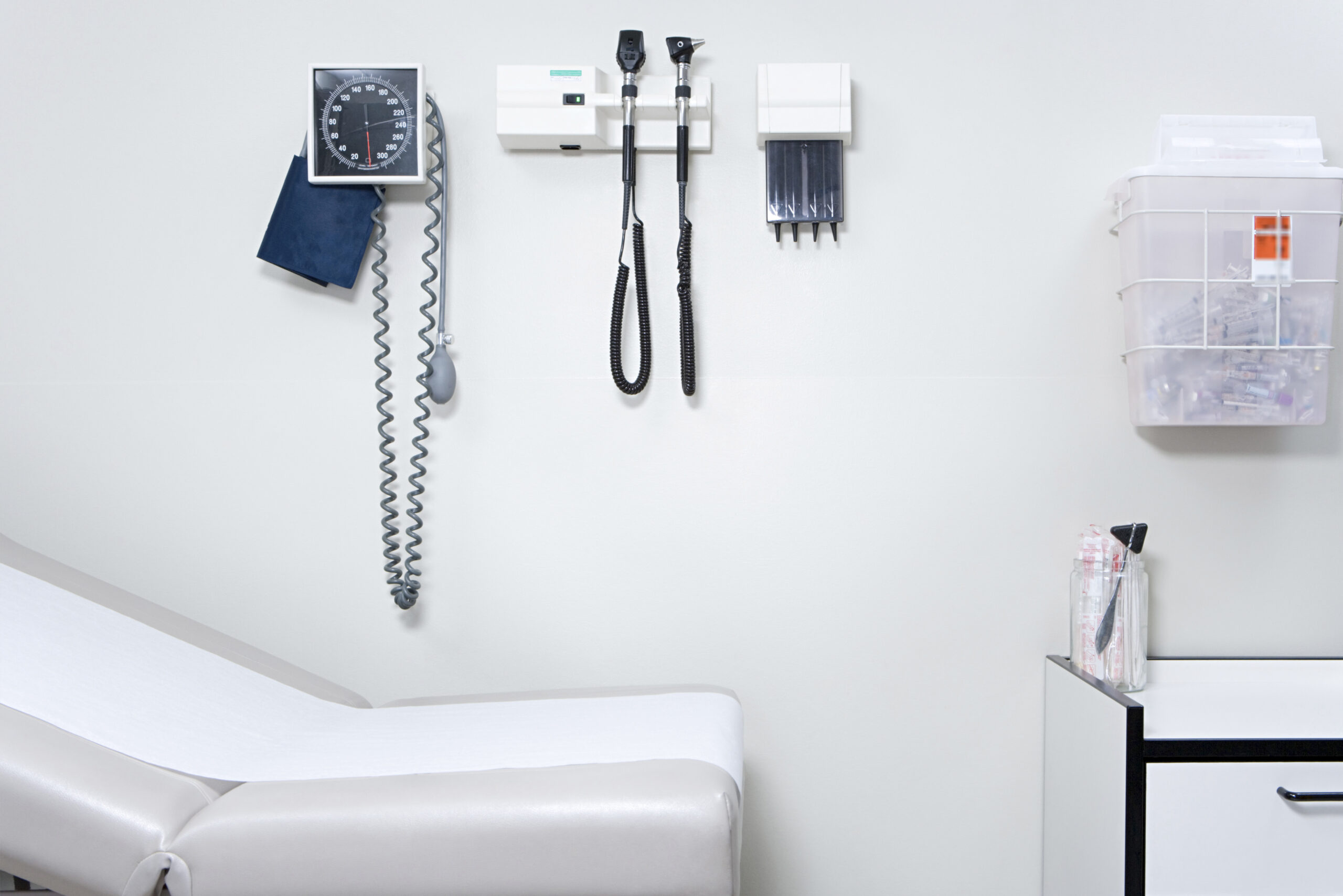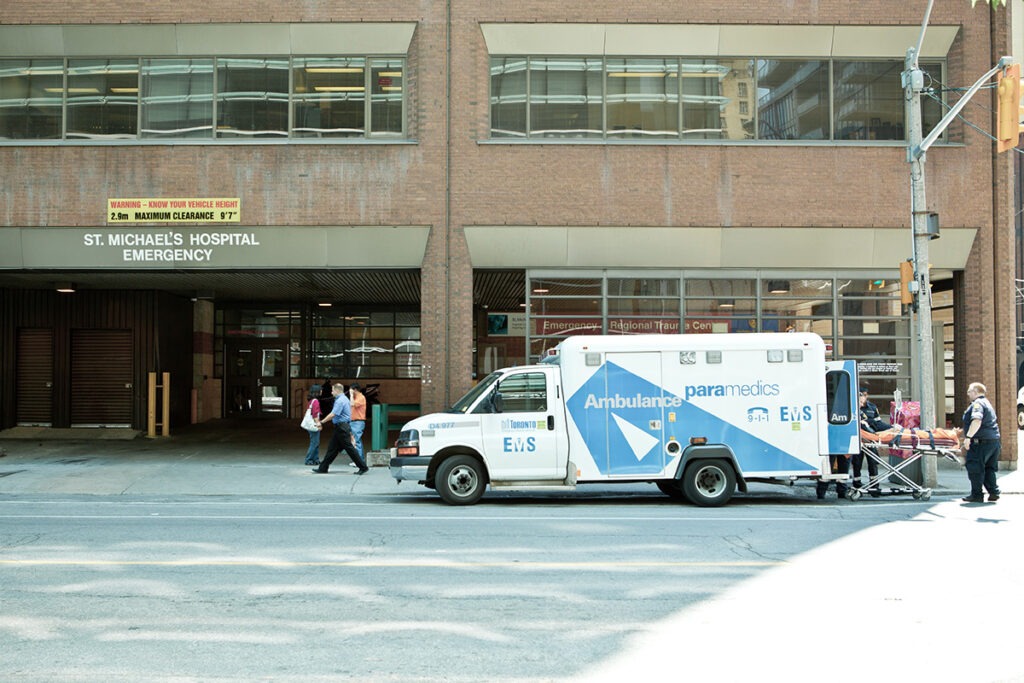Dr. Carolyn Snider was a guest on the Emergency Medicine Cases podcast to speak about what it means to be a leader in the field of emergency medicine. Dr. Snider is the former Chief of Emergency Medicine, Unity Health Toronto.
Month: July 2025
Changes to cervical cancer screening in Ontario
CityNews spoke with Dr. Mandana Vahabi about the new HPV screening guidance making detection easier and faster, to prevent cancer from developing and improve quality of life for women.
Opinion: Ontario needs culturally sensitive, self-collection HPV screening for all women
In this op-ed, Dr. Mandana Vahabi outlines how Ontario provincial government’s current HPV screening strategy has left many structurally marginalized women on the sidelines. She also shares the many benefits to switching to HPV self-tests to ensure access to cervical cancer screening for all.
This op-ed was also featured in the National Post and The Ottawa Citizen.
Many people don’t get screened for cervical cancer. Self-testing kits can change that
While cervical cancer screening is a routine part of health care for Canadians, many fall through the cracks. Dr. Mandana Vahabi‘s latest research found that offering self-screening kits to sex workers and former prisoners – who are some of the most under-screened populations in Ontario – broadened the reach of cervical cancer screening across the province. She spoke to the Toronto Star about these results.
Mandana Vahabi joins Bloomberg Nursing and Unity Health Toronto as Women’s Health Research Chair
From U of T
Mandana Vahabi, a champion of equitable access to reproductive health care for women, has been appointed Professor at the University of Toronto’s Lawrence Bloomberg Faculty of Nursing, and Women’s Health Research Chair at Unity Health Toronto health care network, a jointly held position at the two institutions. She began her new role on September 1, 2024.
“I am honoured to be joining Bloomberg Nursing and Unity Health Toronto as a full professor and as the Women’s Health Research Chair. This position not only aligns with my commitment to advancing health equity but also demonstrates the focus of both institutions on supporting the care needs of diverse communities. I am excited to work together with students and faculty to continue to have an impact on women’s health,” says Vahabi who is also an alumna of Bloomberg Nursing having completed her PhD in 2003.
The Women’s Health Research Chair is made possible through the generosity of the Government of Ontario and St. Michael’s Hospital, a site of Unity Health Toronto. With this support, the Women’s Health Research Chair facilitates the integration of research, education, and clinical practice in advancing access and equity in women’s health. Vahabi’s research will be based at St. Michael’s Hospital’s MAP Centre for Urban Health Solutions.
At Bloomberg Nursing, Vahabi joins a prestigious group of donor-funded, endowed research chair holders that highlight the significant role the Faculty plays in improving patient and population health on a global stage.
“We are very pleased to welcome Professor Mandana Vahabi back to Bloomberg Nursing where she first launched her research career as a PhD graduate, and look forward to our shared partnership with Unity Health Toronto as we continue to drive innovation in women’s health forward,” says Robyn Stremler, Dean of the Lawrence Bloomberg Faculty of Nursing.
As a researcher, Vahabi is a leader in addressing critical health disparities among structurally marginalized groups including refugees, immigrants, and sex workers.
She has most recently piloted a research study examining the impact of HPV self-sampling tests as an alternative to pap tests, to improve access to cervical cancer screening for women. As Ontario looks to adopt HPV cancer screening in replacement of traditional pap tests, Vahabi is currently advocating for the inclusion of HPV self-sampling tests as part of this new cancer screening guideline.
“Allowing women and those with a cervix to self-sample for HPV removes barriers to care access and gives women a sense of bodily autonomy. Here in Canada and around the world, the reproductive health of women is scrutinized without including women in decision-making about their own bodies. Using this self-administered test recognizes the values and care needs of many different cultural and ethno-racial groups and gives them freedom of choice over their own body and how they choose to receive care,” says Vahabi.
Cervical cancer is primarily caused by the Human Papilloma Virus (HPV) and a transition to HPV screening would allow for more accurate detection of the disease and a person’s subsequent cancer risk. The new testing method would also increase the length of time between screening tests, from three to five years.
Many women avoid pap tests Vahabi says, for a variety of reasons including lack of knowledge and factors related to sexual violence and trauma, in addition to distrust of health care providers. A self-sample test, done in the privacy of the individual’s own home would greatly empower them.
For Vahabi, research alone is not enough, but translating that knowledge into actionable policies is crucial for lasting change. Nurses she believes, are uniquely positioned to shape public health strategies and address these structural challenges facing women’s health. It is her hope, she adds, that the future of nursing will involve the implementation of innovative care models that prioritize health equity including improving health for women and underserved populations.
“Unity Health Toronto is committed to promoting and finding solutions for health equity and improving health outcomes for those facing barriers accessing care. We are thrilled to have Mandana join our MAP Centre for Urban Health Solutions at St. Michael’s and further advance our world leading research centre dedicated to creating a healthier future for all,” says Sonya Canzian, Executive Vice President Clinical Programs, People, and Chief Nursing & Health Professions Officer. “We are also looking forward to Mandana’s contributions to building our nursing research capacity through mentorship and leadership.”
One of Vahabi’s key priorities is to mentor and support emerging scholars to foster a diverse and inclusive research environment and encourage a broad range of perspectives. For her undergraduate students at Bloomberg Nursing, she is eager to help them broaden their knowledge about their own ability to impact the health of those around them.
“I really want my students to understand the critical importance of addressing health disparities and to recognize the wider role they can play in advancing justice and equity, in their own careers as nurses, and in their communities, says Vahabi, “if I can advance this understanding, then I have done my job.”
Op-ed: Is peer-review dead? A scientist’s plea to fix a broken system
In this op-ed for Healthy Debate, Dr. Mohammad Karamouzian discusses the ways in which the research community could improve the peer-review system in a way that works for researchers, reviewers and editors.
Primary care in Canada is suffering and doctors want input on how to fix it
In this op-ed for the Toronto Star, MAP scientist and OurCare lead Dr. Tara Kiran reflects on the learnings from the OurCare Standard and underscores the importance of the ongoing survey to hear how people across Canada’s care measures up.
How St. Michael’s Hospital is trying to break the cycle of readmissions for homeless patients
MAP’s Navigator program pairs hospital patients who are homeless with an outreach counsellor—a “Navigator.” The Navigator gets to know the patient and connects them with the health and social support they need to break cycles of homelessness and poor health, and to move forward in securing housing that works for them.
“It’s like having a super advocate,” shared Dr. Stephen Hwang, project lead.
The program started at St. Michael’s Hospital in Toronto, and thanks to the Even the Odds partnership with Staples Canada, has expanded to St. Paul’s Hospital in Vancouver, increasing the program’s reach to over 1000 patients served to date. The program will be launching at the University of Montreal Hospital Centre later this year.
This article from The Canadian Press sheds light on the day-to-day work of the Navigators, and how far a personal connection with patients can go in helping them get the care they need.






